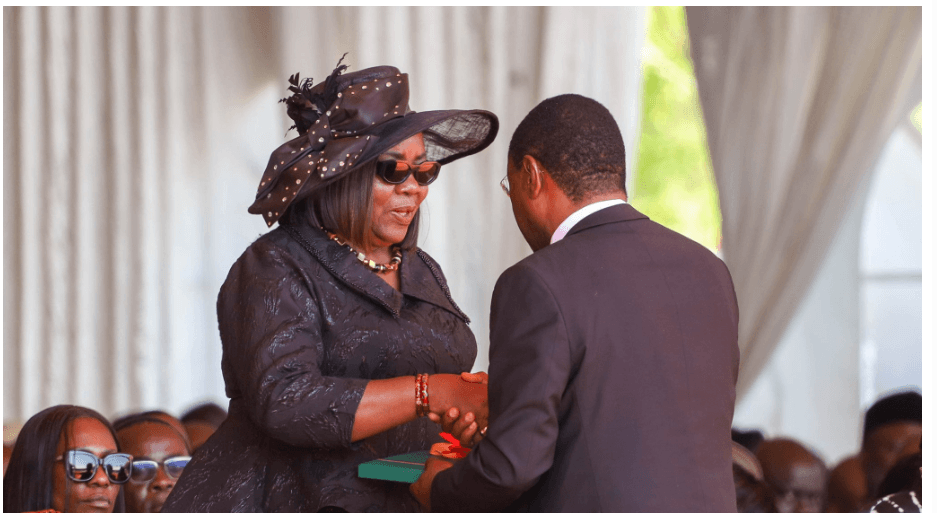It is refreshing that King Charles and Queen Camilla chose Kenya in their inaugural visit to a commonwealth country since succeeding to the throne of the United Kingdom of Great Britain.
Charles, described by some British publications as "the first climate king" due to his passion for environmental conservation and sustainability, has several activities lined up during his four-day state visit.
Besides using the visit to prepare for the upcoming celebration of 60 years of self-rule, Kenya's environmental conservation efforts and robust fight against climate change partly convinced His Majesty to accept the invitation.
Ahead of the weeklong visit, there have been calls for compensation for atrocities visited upon Kenyans by Britain during the colonial period. Indeed, there are multiple historical examples of instances where British colonisers took advantage of the country's natural resources and traditional knowledge.
This included extracting valuable resources such as minerals, plants and other biological materials, which were often used for economic gain without adequate compensation to the local communities who originally possessed this knowledge or relied on these resources for their livelihoods.
For instance, during the colonial period, there were cases where British explorers, researchers and companies extracted plants, animals and other resources from Kenya for various purposes, including scientific studies, pharmaceutical development, or commercial exploitation, often without proper acknowledgment, consent, or compensation to the indigenous communities.
Moreover, the exploitation of natural resources and traditional knowledge without benefit-sharing or acknowledging the contributions of indigenous communities continues to be a concern even in contemporary times.
Efforts have been made globally to address these issues through international agreements and frameworks that aim to protect the rights of indigenous communities and ensure equitable benefit-sharing from the commercial use of their traditional knowledge and biological resources.
Kenya, like many other countries with a history of colonialism, has been working on policies and laws aimed at protecting its natural resources and the rights of indigenous communities. This includes initiatives to address biopiracy and ensure fair compensation, recognition and consent in utilising their traditional knowledge and biological resources.
To accelerate the realisation of this dream, Kenya has to be strategic and leverage the special relationship and connection the country has with King Charles, starting this week during his visit.
Addressing historical injustices, especially illegitimate appropriation or commercial exploitation of natural and biological resources and others associated with traditional knowledge often referred to as 'biopiracy', is multifaceted.
It's also a sensitive process that requires a blend of legal, ethical and socioeconomic considerations lest it ends up being a passionate pet topic that results in no tangible solutions.
While it might be challenging to fully quantify or rectify past wrongs, initiatives for acknowledgement, apology, community development and protecting indigenous rights are steps toward redressing these historical injustices.
Kenya, like many other post-colonial nations, may seek various approaches, including negotiations, policy reforms and international cooperation, to rectify past wrongs and ensure the fair treatment of indigenous communities in utilising their resources and traditional knowledge.
It should not be lost on us that determining compensation for these historical injustices by Britain will involve complex considerations and challenges. It's crucial to recognise that these events occurred during a time when legal frameworks and international agreements regarding the rights of indigenous communities, their traditional knowledge and biological resources were largely absent or significantly inadequate.
Besides finding mechanisms for quantifying the intangible losses, putting in place legal frameworks and partnering with other regional or global victims, efforts to address compensation for commercial exploitation of natural resources need detailed historical research and documentation.
Assessing the economic value of the resources and knowledge taken without consent is difficult but necessary for determining fair compensation. This includes evaluating the benefits derived by the colonisers and the subsequent disadvantages faced by the indigenous communities.
Let's face it; utilising current international agreements, human rights laws and indigenous rights frameworks is important in navigating the legal landscape to address these historical injustices.
However, applying modern legal frameworks retroactively to historical events can be challenging and that's why leveraging on the seeming good relations and connection between King Charles and Kenya would be of the essence.
Included in the compensation conversation should be the long-term development and empowerment of affected rural communities. Also, compensation should not only be monetary but also involve strategies for long-term community development, empowerment and preservation of traditional knowledge.
Put differently, King Charles should go beyond acknowledging historical injustices and work with Kenya towards getting compensation from Britain and promote ethical practices in utilising traditional knowledge and Kenyan natural resources going forward.
Consulting editor and conservation enthusiast. [email protected]












